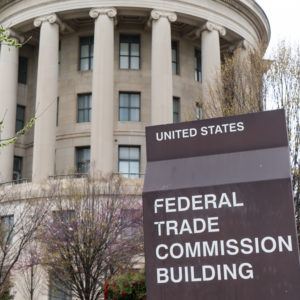As President Trump levies tariffs against China and the People’s Republic responds in kind, members of Congress face an unprecedented quandary. Most lawmakers understand that they have the “power of the purse,” and nearly full discretion in raising or lowering taxes — including tariffs.
As the commander in chief, however, the president has an enshrined constitutional prerogative to act in the interests of national security. But unless these powers are well-defined, future executives are bound to trample Congress’ authority, and force lawmakers to go along with tax hikes to which they never consented.
Former vice president and presidential hopeful Joe Biden has already hinted at these future abuses of power, pledging that he would tie tariffs to countries implementing onerous “green” taxes.
Fortunately, the Bicameral Congressional Trade Authority Act introduced by senators Pat Toomey, R-Pennsylvania, and Mark Warner, D-Virginia, pre-empts these power grabs, preserving the delicate balance between the president and lawmakers. Unless Congress acts soon to assert its role in trade, its powers will be dramatically curtailed — with consumers and taxpayers paying the price.
As Americans are treated to an onslaught of presidential candidates making outlandish promises with astronomical costs, it’s easy to lose sight of how radical presidential hopefuls are on trade policy.
Biden wants to condition trade tax rates on carbon taxes (read: taxes on the global poor), ensuring that any country that doesn’t want to gut its working class will be shafted by the U.S. government. Meanwhile, Sen. Elizabeth Warren, D-Massachusetts, would have the U.S. boycotting long-standing trade partners unless they meet a set of outrageous positions (i.e. “eliminate all domestic fossil fuel subsidies” and not “merit attention for their currency practices”).
Under the current ambiguities of trade law, these candidates could assert some vague “national security” pretext and wage tariffs as they see fit. Fortunately, Toomey and Warner’s proposal allows Congress to kibosh disastrous trade plans with a simple majority. If the president invokes the national defense as a cause for action, Congress could push back by simply declining to pass an approval resolution within 60 days. Given that Congress is regularly controlled by a different party than the Oval Office, this reform maintains the necessarily adversarial system of checks and balances that lies at the core of the American experiment, while still allowing tariffs if genuinely necessary to be passed.
Further, the loaded, vague phrase “national security” is explicitly spelled out in the bill as relating to energy sources, military equipment and critical infrastructure and adding up to a “substantial cause” of threat to the United States. This constrained definition is still vague, but at least gives lawmakers more precise grounds to reassert their constitutional authorities.
Unfortunately, other trade bills currently under consideration would give a constant green light to power-hungry presidents. Ohio senator Rob Portman’s Trade Security Act would keep the executive in charge of trade policy and require a supermajority of Congress to overturn the whims of the president. Under Portman’s proposal, Congress could issue a resolution of disapproval in response to a President Biden or Warren’s “national security” trade taxes. But an executive could in turn veto the resolution, forcing lawmakers to muster a two-thirds’ majority to close the book on the president’s tariffs — something all-but-impossible in the real world.
The differences between Portman and Toomey and Warner’s proposals may seem minor, but these distinctions will make all the difference for consumers already overtaxed by the federal government. At a time of historically high partisanship and division, herding a supermajority of lawmakers to agree on anything is a Herculean task. A simple majority is eminently doable but takes persuasion and partisan discipline that can easily waver if the president’s actions are unreasonable.
The Bicameral Congressional Trade Authority Act could result in President Trump maintaining the U.S. trade war with China but forces him to make the case to Congress. Lawmakers would hold the keys, yet the president could frame the debate and force Congress’ hand in the case of a genuine threat to national security.
That system may not be perfect, but it’s the best we’ve got for approaching a historically difficult challenge to American governance. Consumers and taxpayers can benefit from a steady-handed approach that keeps the executive in check.

